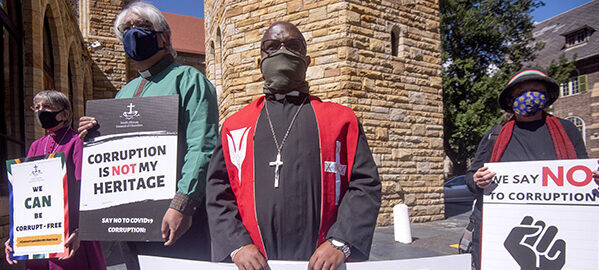At what was described nearly 30 years ago in 1995 as a watershed moment in the history of the newly formed democratic order in South Africa, the South African Council of Churches (SACC) and World Council of Churches co-hosted an ecumenical dialogue, the Vanderbijlpark Conference.
The purpose of the conference was to reflect on the outcome of the first democratic election in which the ANC won a sweeping victory, snatching 62% of the vote, short of the two-thirds majority required to unilaterally amend the interim constitution of 1994.
Also, the conference was entrusted with the task of assessing what value a government of national unity (GNU) of 1994, comprising, among others, former oppressors, the now extinct National Party, would bring to the table to ease the plight of black masses, who bore the brunt of apartheid iniquities and unjust rule – including land dispossession, which had been a burning issue since 1652 when Dutchman Jan van Riebeeck and his crew landed in South Africa.
This would be the case through to 1910 when South Africa and the sub-continent at large became outposts of the British empire, which would, in the words of the late president of the SACC, Khoza Mgojo, who addressed the 1995 conference, lead to “the Boer and the Briton settling their historical differences by illegitimately founding a whites-only settler state in 1910 – named the Union of South Africa”.
Mgojo described the white-only establishment as “blasphemous”, as it was racist, sexist and irrational. He described it as irrational because it unjustifiably excluded the African indigenous population, demanding that the conference should enjoin the new GNU of Nelson Mandela to work towards correcting the unjustice of past. The conference was unanimous that if such imbalances were not addressed, the GNU would not be worth the paper it was based on, arguing that the church should not be expected to support governments that betray human rights.
Mgojo said it took a lay minister in the Methodist Church, and leader of the Pan Africanist Congress, Robert Mangaliso Sobukwe, to orchestrate a peaceful anti-pass law campaign.
The impact of the anti-pass march led to the 1960 Sharpeville Massacre, in which the brutal apartheid police shot dead 69 people and injured about
200 protesters did not deter the people’s spirit to demand an end to an unjust, oppressive political system.
During the late 1960s through to the 1970s, the impetus for change accelerated and gave rise to the birth of Black Consciousness Movement, the Soweto students’ revolt in 1976. the birth of the Azanian People’s Organisation, and the founding of the United Democratic Front.
All these organisations developed programmes to undermine the political system, creating huge pockets of ungovernability to thwart apartheid.
Outside the country, the liberation armies that included the ANC-aligned uMkhonto we Sizwe, the PAC’s Azanian People’s Liberation Army or Apla and the Azapo’s Azanian National Liberation Army scaled up military efforts to dismantle the apartheid squeeze.
The point to be made is that the ecumenical movement during the apartheid years played a crucial role in shaping the politics of the day.
Which brings us to the point that the current ecumenical church ought not from the comfort of its cloister become a bystander, sheepishly looking on as bad governance, corruption and all forms of injustices intensify. It has a duty, among others, to monitor the performance of the newly formed GNU, made up of an assortment of parties, some of which have no known record of agitating for social justice and equality of opportunities encapsulated in black economic empowerment policies.
Apartheid is gone but nobody should delude themselves that its legacy is dead – it is much alive with its face which manifests itself in the many underdeveloped areas of our country. You only need to look at the ever-mushrooming squatter camps to realise housing is a crucial area that requires the GNU’s attention. This calls for the ecumenical church to develop programmes to monitor the impact GNU is having on people’s lives.
A call was made at the 1995 Vanderbijlpark Conference to urge the church to constantly monitor the democratic government of Nelson Mandela.
The same call ought to be extended to today’s ecumenical movement to monitor President Cyril Ramaphosa’s GNU, for without the involvement of the church our democracy will become a damp squib.
- Mdhlela is a freelance journalist, an Anglican priest and an ex-trade unionist



